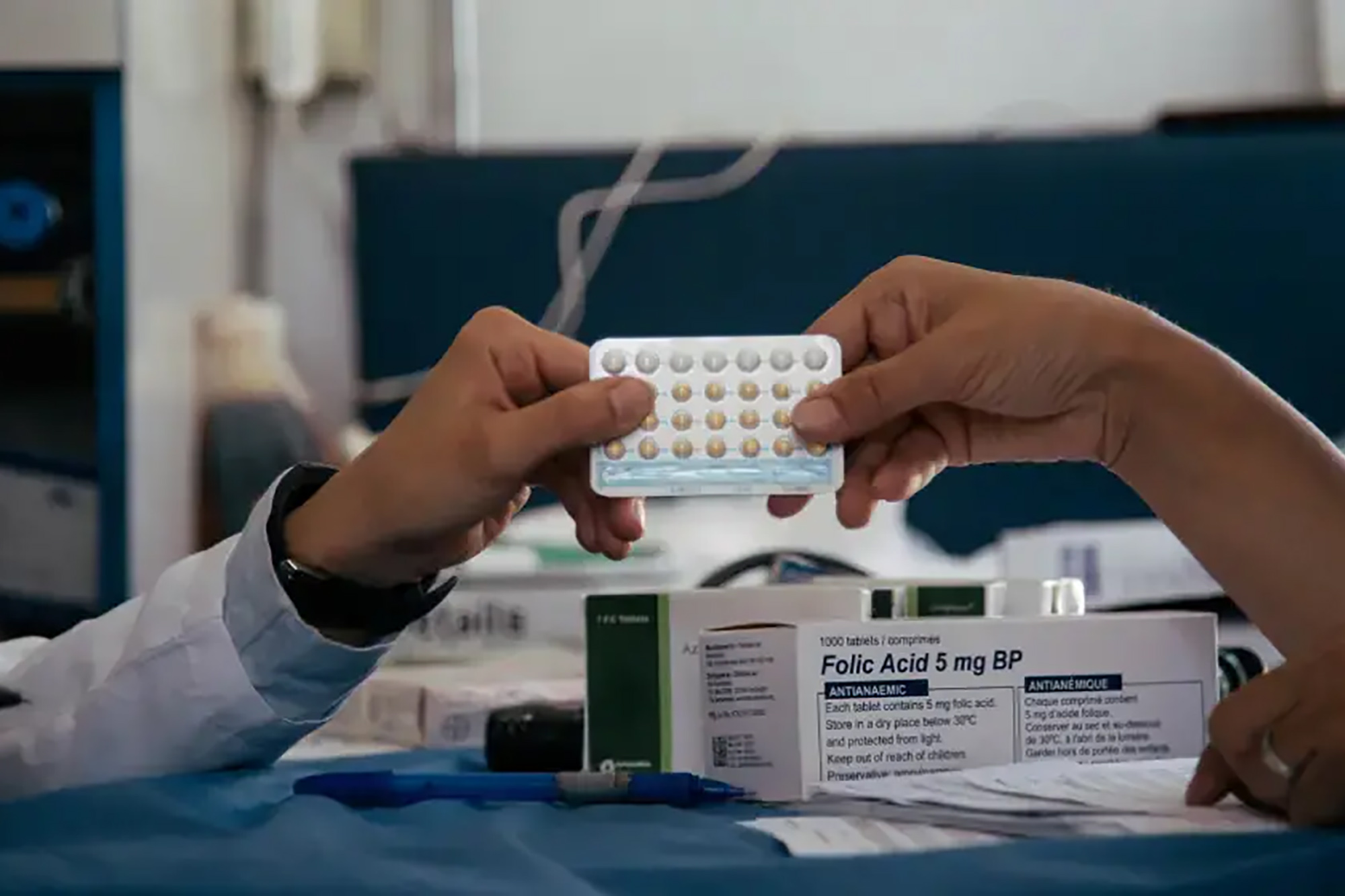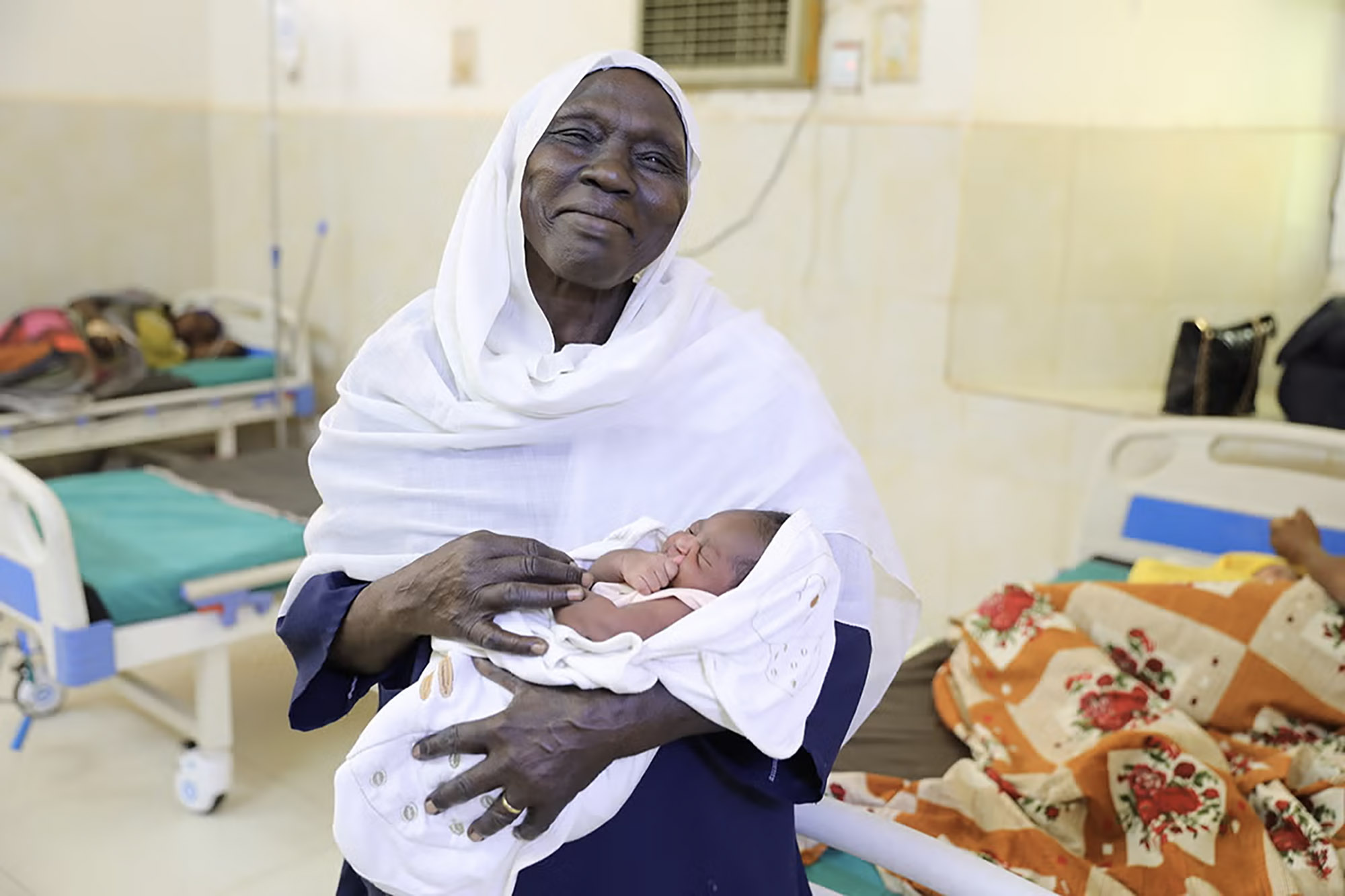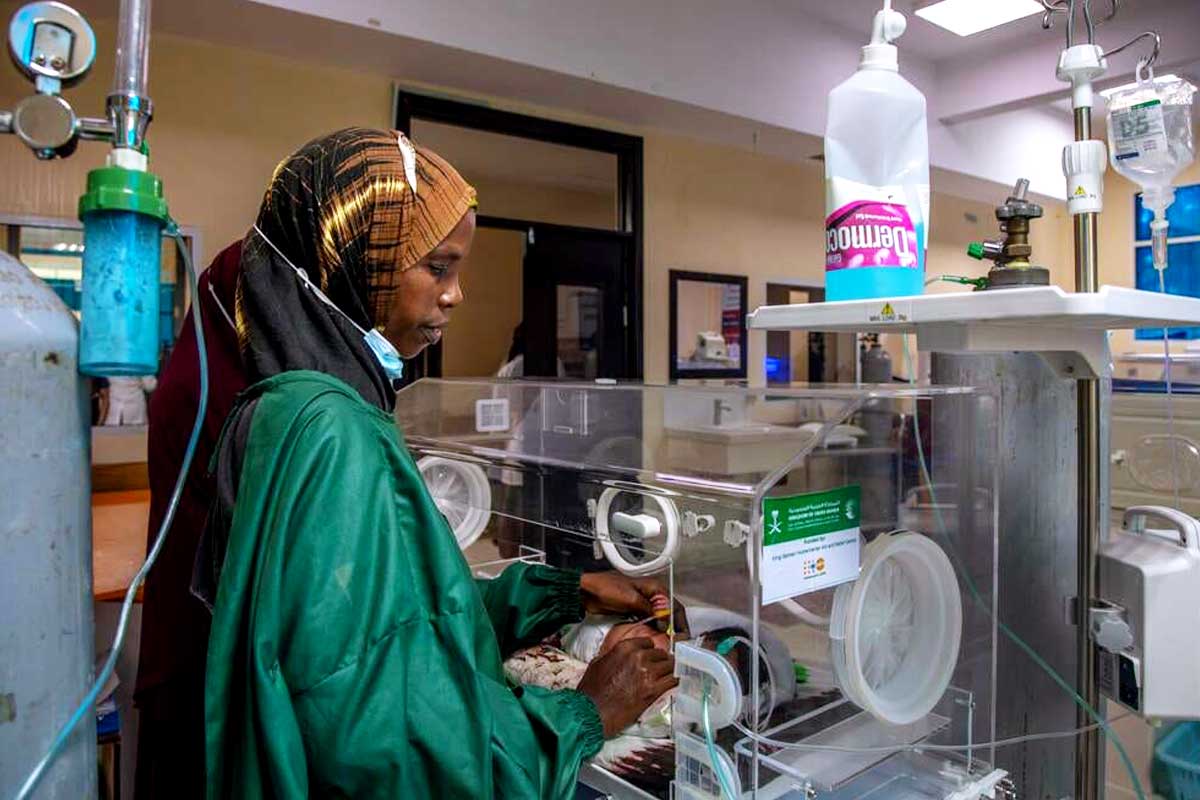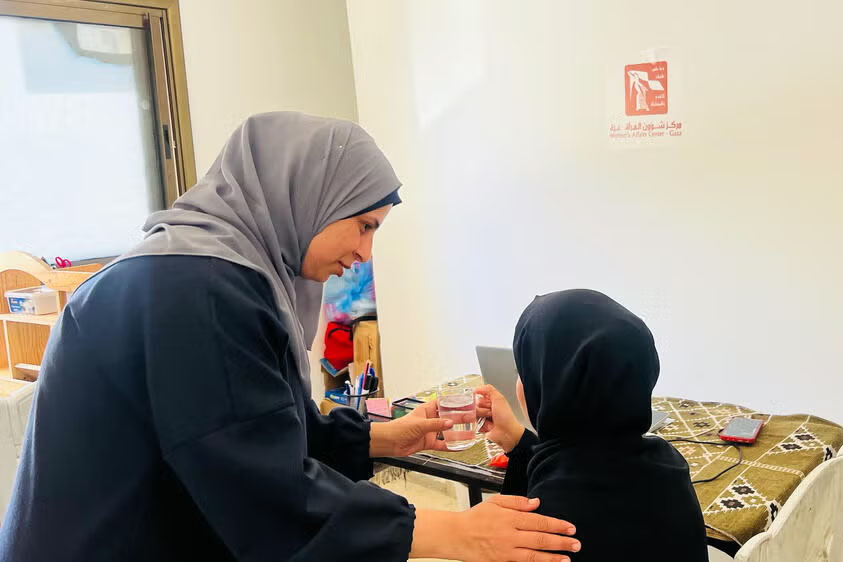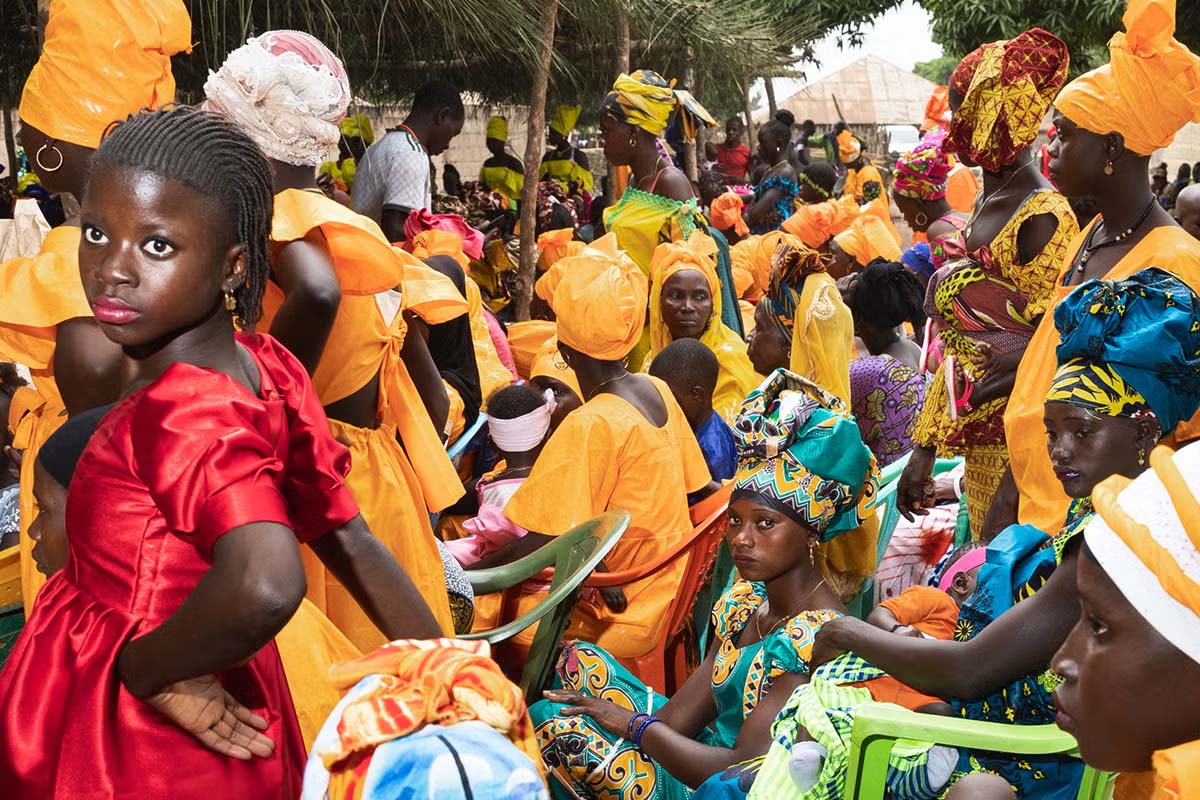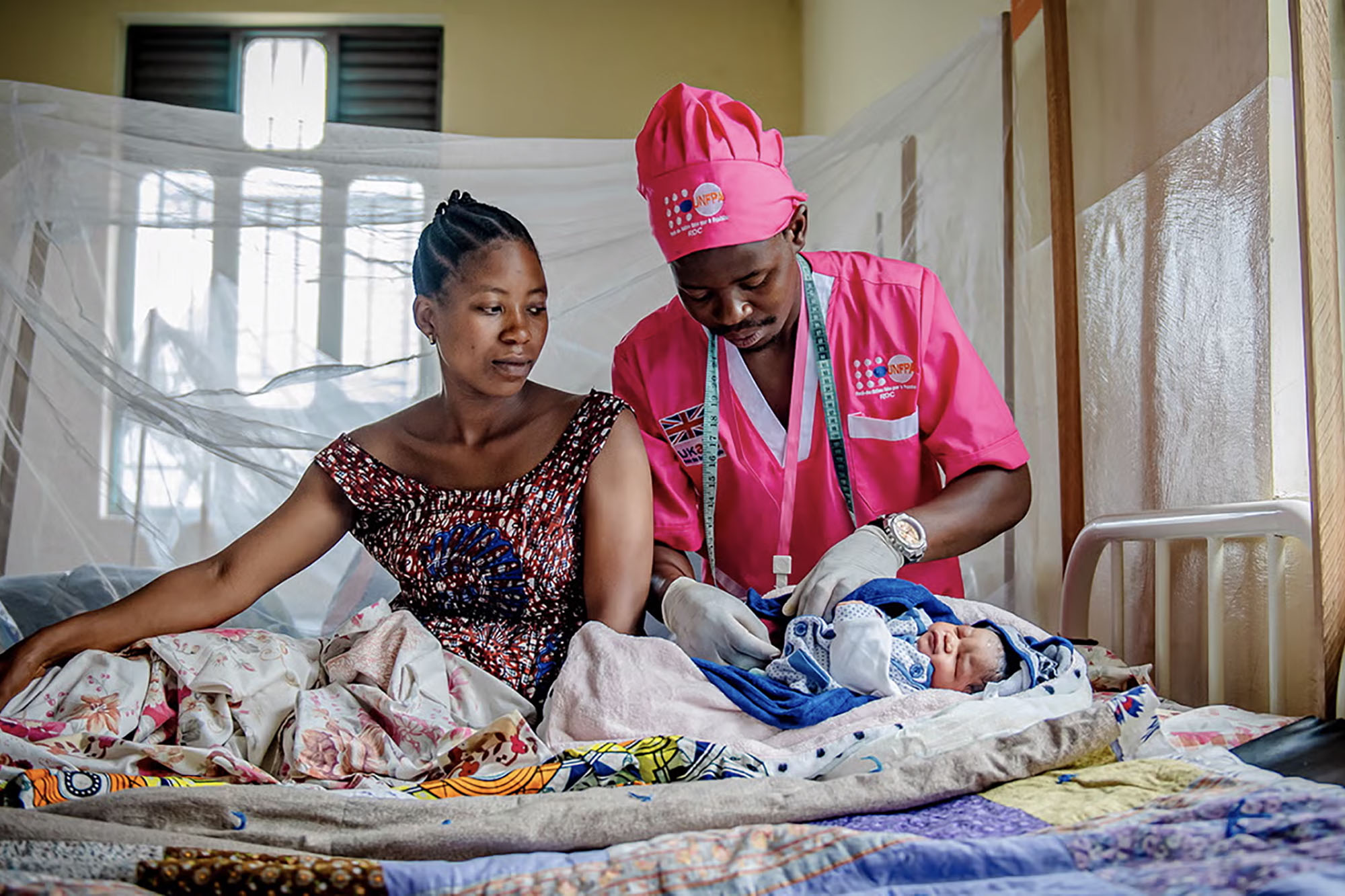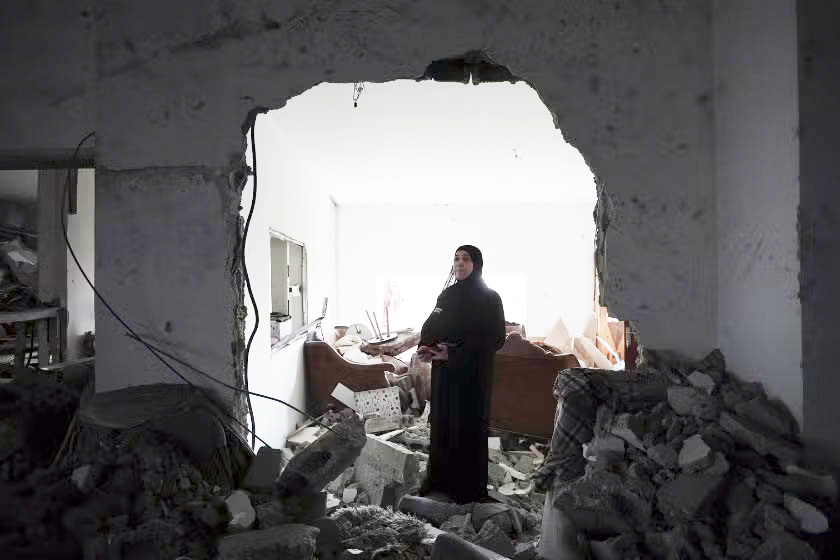Misinformation about contraception poses serious risks. Just ask Evaline Chepkemol from rural Kenya, where maternal death rates are high. Many women fear contraceptives, believing they lead to loss of children or infertility. Evaline, however, received accurate information from a UNFPA-supported hospital, allowing her to space her pregnancies safely. Unfortunately, global funding shortages threaten contraceptive availability, potentially resulting in unintended pregnancies and maternal deaths. The spread of myths, such as the idea that contraceptives can induce miscarriage, contributes to this issue, despite being factually incorrect.
UNFPA
Imagine a hunger that never ends, one that threatens your very life. In Gaza, daily violence and collapsing hospitals put mothers and newborns at extreme risk, United Nations Population Fund (UNFPA) delivers essential medical care, emergency obstetric services, and psychosocial support.
Your donation helps ensure that even amidst war and devastation, mothers receive the care they desperately need and their babies have a chance to survive and thrive.
We hit the streets of #NewYork to ask young people a simple question: Do you want to have kids? Hear what they have to say and join @UNFPA—the @UnitedNations sexual and reproductive health agency—to support their freedom to choose their own lives.
When war erupted in Sudan in April 2023, it tore a deadly path through the capital, Khartoum. In the years since, fighters have brutally targeted civilians across the country, resulting in the world’s largest displacement crisis with some 12 million people forced from their homes. Today, as families begin to return to Khartoum, the scars of conflict remain painfully visible, especially in the shattered health system. UNFPA, the United Nations sexual and reproductive health agency, is part of the effort to restore what has been lost.
A Chance to Breathe. Tiny cries, big hope: incubators are giving Somalia’s newborns a fighting chance. Imagine holding your breath, waiting for your newborn’s first cry, and hearing only silence... That was Faduma’s reality in Mogadishu, until a simple incubator gave her baby the breath of life. In this powerful, heart-tugging story from UNFPA, discover how a handful of life-saving machines —incubators, oxygen units, and surgical gear — are transforming hospitals once teetering on the edge of despair. Meet the unstoppable health workers defying the odds, mothers who turn fear into joy, and the miracle of modern care in places where even electricity isn’t a guarantee. It’s a story of survival, love, and why funding matters — because every breath counts.
In conflicts across the globe, sexual violence – including rape, abuse, coercion and trafficking – is increasingly being wielded as a weapon to terrorize women and girls, often leading to devastating physical and psychological trauma. At least 20,000 women and men were raped or abused during the 1992-1995 conflict in Bosnia and Herzegovina. Jasna (name changed) is one of these survivors. She has gained stability and healing through Snaga Žene, an NGO offering psychological, legal, social, and economic support, including access to a greenhouse to cultivate and sell vegetables.
See how midwives like Nadiifo step up to provide life-saving support where over 3 million people in Somalia are displaced and many pregnant women have limited or no access to healthcare.
Amid Gaza’s escalating conflict, repeated displacement, blockades, and resource shortages severely limit safe spaces and support services for women survivors of violence and abuse.
This World Population Day, stand with United Nations Population Fund to ensure every woman and girl has the freedom to speak, choose, and control her own body.
World Population Day 2025 (11 July) focuses on empowering the largest youth generation in history to create the families they want in a fair and hopeful world. Although global fertility rates are declining, the real crisis lies in the lack of reproductive agency: too many people are unable to realize their fertility goals because of economic uncertainty, gender inequality and limited healthcare. Access to sexual and reproductive health and rights is vital for a sustainable future. Let’s build a world where everyone dreaming of parenthood is given the hope and support to bring that dream to life!
In the West African country of Guinea-Bissau, more than 400,000 girls and women have undergone female genital mutilation. Despite decades of effort, the prevalence of the harmful practice has remained. Now, communities are coming together to change that. In the Gabu region, in the eastern part of the country, 24 rural communities recently united in a show of solidarity and hope, gathering to advocate for the right of women and girls to live free from harm – and to sign a declaration of intent to end the practice for good. Here, a look inside the powerful event.
Millions of people around the world are unable to have the number of children they want – whether they want more, fewer, or none at all. Recently, fertility declines are making headlines, with women all too often blamed for these demographic shifts. Some governments are employing drastic measures to incentivize young people to make fertility decisions in line with national targets. But the real crisis is that the most consequential reproductive decision a human being can make – when, whether and with whom to have a child – is being undermined. Together with YouGov, UNFPA conducted a survey of 14 countries to ask people whether they are having the families they desire. We found that alarmingly high proportions of adults are unable to realize their fertility intentions.
Giving birth shouldn't be a fight for survival. In Gaza, Nisma had to flee her home pregnant and now struggles to feed her newborn. Hear her story and see how UNFPA—the United Nations sexual and reproductive health agency—is supporting mothers during humanitarian crises.
Loti Kubuya Mielor, a midwife supervisor in Goma, Democratic Republic of Congo, vividly recalls a critical moment on January 2, 2023, when a woman gave birth to quadruplets under his supervision and subsequently experienced severe postpartum hemorrhage. Thanks to Loti's decisive actions and swift administration of medication within seven minutes, he stabilized the mother, preventing a life-threatening situation. Two years later, he still carries photos of the quadruplets on his phone. Midwives play an essential role in crises, often being the first and only care providers for pregnant women and newborns facing complications. In conflict-affected regions like eastern DRC, maternal and neonatal mortality risks can double due to disrupted health systems and limited access to vital services.
Pregnant women and new mothers in the West Bank are facing life-threatening risks as violence, displacement, and the collapse of healthcare services leave them without access to essential care.

